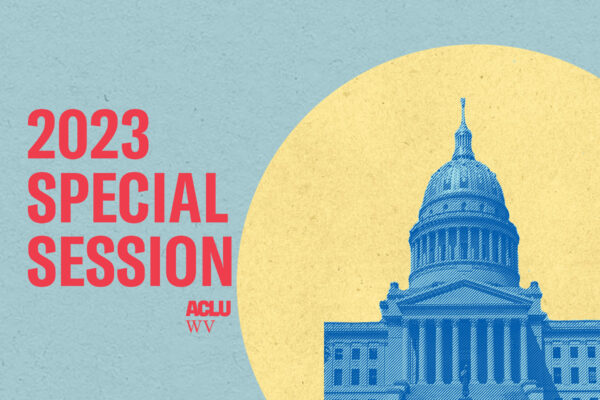As legislators were preparing to leave the state Capitol Sunday afternoon amid a light interim meeting schedule that was beginning to wrap up, Gov. Jim Justice called for a special session to address some 40 pieces of legislation to start in just 40 minutes.
By noon the next day, the Senate had skipped committee review and suspended constitutional rules to pass 35 bills, getting them halfway through the legislative process less than 24 hours after the public even had notice they would be considered.
By Tuesday night, the Legislature had passed 35 bills into law.
Of course bills are often shepherded through quickly during special sessions to avoid the bad press of incurring high per diem costs, and to allow our part-time legislators to get back to their lives.
Still, it’s impossible to ignore the larger trends here. Our Legislature, which is supposed to be accountable to the people, is increasingly abdicating its duty to be transparent and responsive to us.
The problem is particularly notable in the Senate. Remember that in 2019, the Senate used a virtually unheard-of “Committee of a Whole” process to pass a sweeping education reform package that would not have survived committee review with virtually no debate or discussion. In the 2023 Session, the Senate bypassed committee review and constitutional rules to pass 25 bills.
It used to be standard for bills to get review by at least two committees in each chamber. Single-referencing bills (sending them to just one committee), was reserved for fast-tracked legislation. Today, most bills just get one committee reference.
To the frustration of even some members of the majority party, the Legislature has increasingly used committee substitutes and strike-and-insert amendments – these are rewrites of legislation that can be as simple as technical cleanup but can sometimes completely repurpose a bill. They aren’t public until they’re voted on, and often legislators don’t get to see them until they are in the committee meeting.
Technology has outpaced our Open-Meetings Act. Text threads and e-mail chains often contain all the policy debate we would expect to have out in the open. While legislators may not be technically violating the law because of exceptions for caucus meetings, the process certainly violates the spirit of the law.
The House has limited debate and remarks by members, while also restricting the use of public hearings to solicit the public’s input on legislation. The Senate, meanwhile, has restricted the public’s ability to take pictures and videos of public meetings.
The defenses of these acts are unconvincing. Senate President Blair defended fast-tracking bills in the 2023 legislative session by claiming that the bills passed the Senate in the previous session. He neglected to mention that many bills, including complex bills like breaking up the state Department of Health and Human Resources, had not previously passed. Nor did he acknowledge that an election occurred between the sessions and that new members had been sworn in who never voted on the bills in the previous term.
On principle, regardless of political stripe, we should be outraged at the ways in which transparency and process are being flouted.
But the impact goes far beyond principle.
We elect representatives to make careful, thoughtful decisions about the legislation that impacts our lives. When bills are fast-tracked and rubber-stamped, we are deprived of that level of care and consideration. In fact, in the Legislature’s rush, mistakes are often made, and increasingly legislative time is spent in subsequent sessions fixing mistakes that could and should have been caught before bills were passed because of the rush.
Legislators also lose valuable insight. Opponents of legislation are never just contrarian. They often have valid and important arguments. When legislators only bring in the voices and viewpoints they already agree with in crafting legislation, and cut opponents out, they miss perspectives that can be vital in passing good bills.
Finally, and most importantly, we, as citizens have a right and a responsibility to pay attention, to be aware, and to be involved in our government. And when we are cut out through opaque maneuvers and short-cuts, we lose that right.
But we do have another right we can exercise; we can elect representatives who will legislate the right way.

